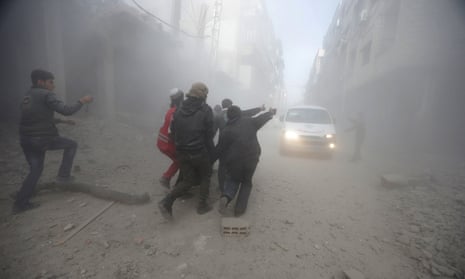When world leaders meet in Turkey for the world humanitarian summit next month, a crucial issue on the agenda will be how to strengthen respect for the law of war.
This is something the world desperately needs.
Given the stream of images flashing across our smartphones or TV screens – of hospitals bombed, populations besieged or millions uprooted from their homes – it is not surprising that many people question whether the laws governing armed conflict work at all.
I share the frustration lying at the heart of that question. It’s not possible to be confronted with the endless horrors people endure in places like Syria, South Sudan and Afghanistan without a sense of outrage. And it’s an easy step from there to be cynical about whether the basic human values enshrined in the Geneva conventions are still intact and able to provide the protection they promise. Furthermore, the complexity of modern conflict, with increased extremism and wars without borders, adds challenges.
However, if we dig just a little deeper we will actually find that the law of war is in fine shape.
This law, like any law, won’t stop all suffering. This may sound counter-intuitive. But importantly, the law has never been stronger or better known by the public and the outrage expressed when it is breached has never been greater. So although it may be tempting to say the Geneva conventions don’t work, that would be a fallacy.
Here are five reasons why it’s dangerous to give up on them:
1. They help save lives every day. Even though the Geneva conventions are widely violated, they still save lives. Amid the conflict in Syria, those instances where we are able to cross frontlines to deliver medical care and relief supplies and provide clean drinking water to millions of people show that the law is of crucial importance. It is not just a question of reminding the warring parties of the rules. It’s about helping them to put the law into practice.
At the International Committee of the Red Cross, we explain to warring parties practical ways to reduce civilian deaths – for example in Afghanistan, we urge fighters not to attack military targets while women are doing their morning market shopping. Sometimes the law of war manages to achieve things that people should be able to take for granted but cannot, such as sparing a hospital from attack in Mali or getting an ambulance through a checkpoint in the West Bank.
2. The very existence of the conventions provides a vital framework. Without them, there would be no clear way of knowing what is acceptable in war, and what is not. Last December, states made new commitments to look for ways to improve compliance and agreed to work towards building a new forum that would support this aim. Such commitments must now be translated into action.
The ICRC has just published updated commentaries on the conventions, to help ensure the law evolves to keep up with the latest trends in warfare. In the last few years, the ICRC has supported the teaching of the law of war in more than 400 universities and helped train 45,000 military, security and police personnel. While our role in conflict areas is unique, we are just one part of worldwide endeavours on these issues.
3. Weapons treaties dramatically reduce human suffering. Since the Ottawa treaty banning landmines came into effect in 1999, we estimate that the number of people killed or maimed by landmines has dropped from about 20,000 people a year to about 3,500. New production of these weapons has virtually ceased and 48 non-state armed groups have pledged not to use them and are largely keeping their word. Thanks to the ban on chemical weapons, their use is taboo and stockpiles have been largely destroyed.
4. We must avoid a vicious cycle. There is a gap between people’s expectations of the law and the reality in conflict, but we must not allow this to develop into a vicious cycle where not respecting the law becomes normal. Public disenchantment with the behaviour of warring parties can all too easily be used as a smokescreen for states and armed groups to claim the law is failing. They may then seek to justify their violations as inevitable and realistic behaviour in armed conflict. The media and humanitarian agencies often only publicise breaches of the law, not the many instances in which it is respected and applied: every time a child is vaccinated in a conflict area, an army stops an attack because of the potential for civilian casualties, or a detainee is protected from torture.
5. Supporting the conventions is morally the right thing to do. Ultimately, there is no ethical alternative to working to uphold respect for the law of war. There are some things, like protecting human dignity, that are critical to humanity and cannot be measured by results alone, let alone short-term results.
All these arguments mean that at the world humanitarian summit, we must reaffirm the centrality of international humanitarian law and the protection it can and does offer to those caught up in conflict.
It may be frequently violated, but that does not mean it has become irrelevant. It continues to have a vital role to play. The alternative – war without limits – is simply not acceptable.
- Dr Helen Durham is director of international law and policy at the ICRC







